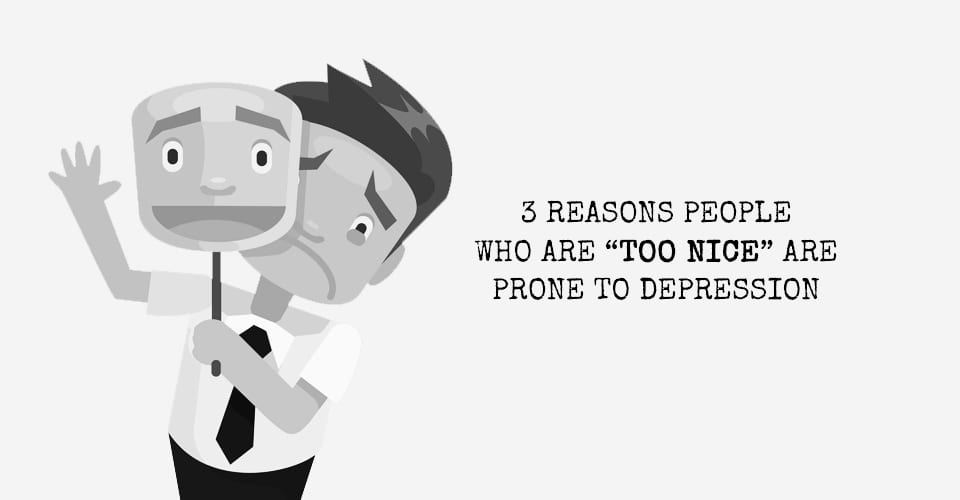“Be nice to people, be kind, and be considerate all you want, but at the end of the day, never put someone else before you,” wrote G.L. Lambert.
Kindness is wonderful, but even this virtuous trait has a dark side. Sometimes we are kind for the wrong reasons. Sometimes we are kind to the wrong people. Sometimes we are kind to others, but negligent or even abusive to ourselves. In these situations, our own kindness can come to destroy us.
We become people-pleasers, which erases our sense of identity and leads to depression.
Have you ever been accused of being “too nice”?
Here are three reasons this life strategy may be hurting your mental health:
1. People-pleasing can invite disrespect from others – and from ourselves.
People-pleasers all too often become doormats. When others sense that you would rather please them than please yourself, they will assume that you hold little value in your own eyes. They will mistakenly think you have little to offer the world. Soon, you will start to believe this, too. It is up to you to show them – and yourself – that your opinions matter. Give a voice to your values and ideals, even when they may not be popular. Let people know what you’re made of. Demand respect from others, and, most importantly, give it to yourself. A positive self-regard is one of your most important weapons in fighting depression. Cultivate it. Use it at every opportunity. Don’t give anyone the impression that your feelings are something to disregard.
2. Being kind for the wrong reasons can backfire.
Often, we people please to get what we want. We want to be liked. We want the approval of our loved ones and society. Sometimes we just want things to be easy. Unfortunately, as Criss Jami pointed out, “Being nice merely to be liked in return nullifies the point.” Kindness only feels good when it comes from the heart. It’s then that the results won’t matter. If your kindness is seeking something in return, you will surely be disappointed. You will end up giving all the time, inevitably pouring from an empty cup. This will lead to bitterness, exhaustion, and, eventually, depression.
3. When we cater to others, we are allowing them to define our sense of self.
Do you ever feel as if you’re living someone else’s life? When we are dedicated to pleasing those around us, this can happen all too easily. You go to law school to please your parents. You move to a bustling city and adopt a cat to please your partner. You go to church to please your extended family and friends. From the outside, this looks like a dream life. Too bad it isn’t your dream. Nobody knows that on the inside, you identify as a country girl, a dog person, an artist, and an atheist. When you keep these parts of yourself hidden to please others, they turn into resentments. The best, most vibrant things about you will start to go rotten. You will become depressed as you watch your true self-fade into oblivion. Don’t let this happen. Your loved ones have been given their own lives, which they can live however they like. Yours belongs to you alone. Make it real, and make it count.
“Most women are starving to receive something from a man that they need to give to themselves,” explained Sherry Argov. Caring for yourself is not self-centered. In fact, it’s quite the opposite. Self-care is a way to build yourself up.
You become stronger, more useful to others, and more resilient to people-pleasing and depression.
You develop a strong sense of self and become able to identify and appreciate what you have to offer the world. Get to know yourself. Care for yourself. Love yourself. Value yourself. Refuse to play a supporting role in someone else’s life when you ought to be starring in your own.


